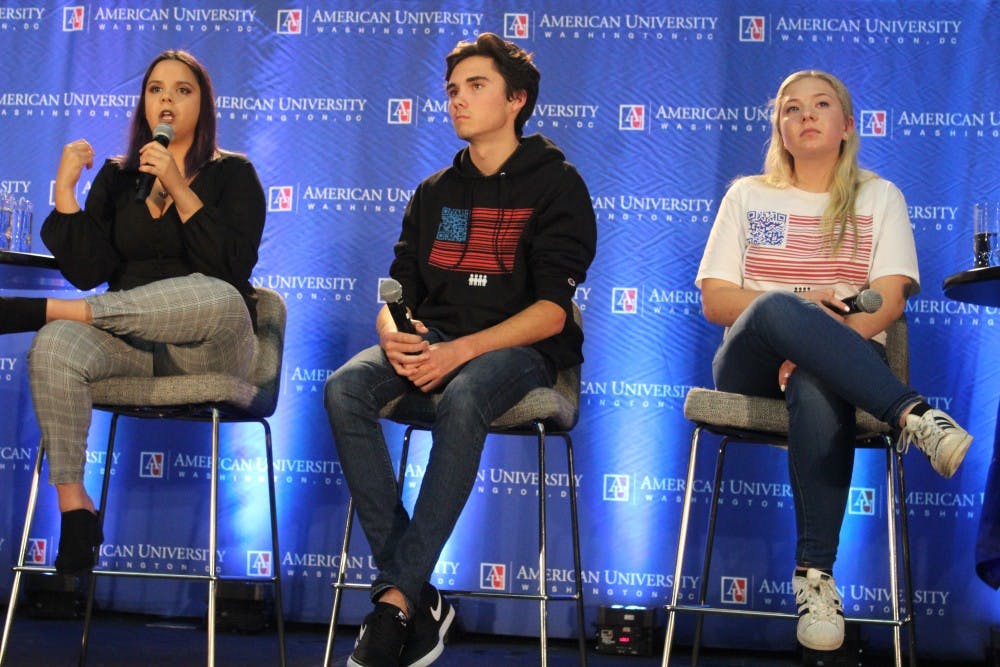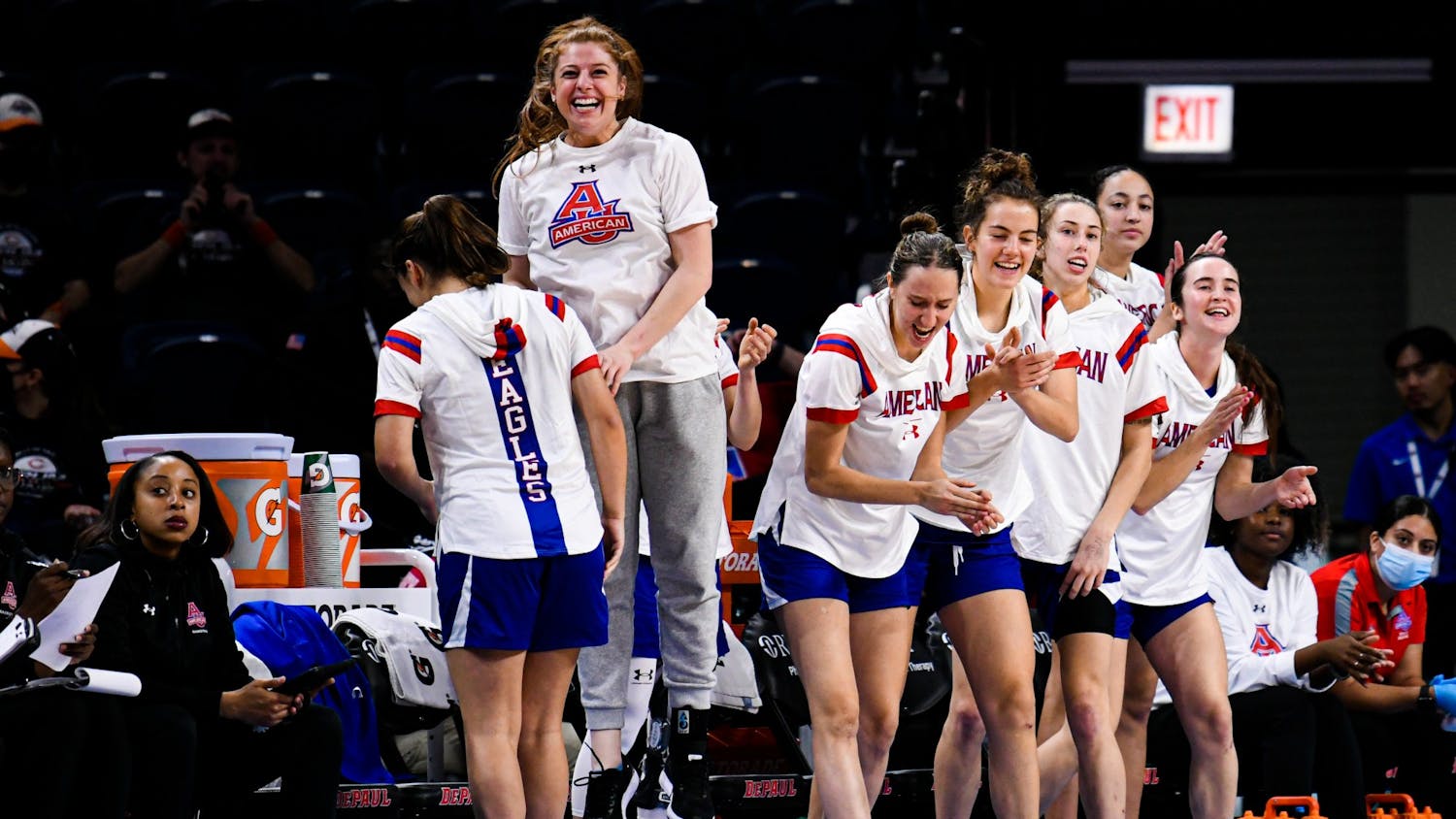Student activists from Marjory Stoneman Douglas High School in Parkland, Florida discussed activism, voting and their plans for the future with the AU community in an Oct. 9 event hosted by the Kennedy Political Union, the School of Education and the Washington College of Law.
David Hogg, Jaclyn Corin and Samantha Fuentes spoke at the Larissa Gerstel Critical Literacy and Social Justice Symposium. The trio are all former or current students at Stoneman Douglas, where a classmate murdered 17 people and injured several more, including Fuentes, in one of America’s deadliest school shootings in February.
Almost eight months later, the students are traveling across the country to mobilize young voters through their organization March For Our Lives, a national gun violence prevention movement. In an interview before the event, the three discussed the importance of voting and their plans to maintain young voter mobilization following the midterms.
Corin, who is now senior class president at Stoneman Douglas, emphasized the importance of grassroots activism and local connections in the greater gun violence prevention movement.
“We’re building up March For Our Lives chapters and connecting with other GVP [gun violence prevention] groups,” Corin said. “When it comes to connecting with our politicians, we want to set up a way for our chapters to be connected to their congressman so they can have monthly, bi-monthly meetings so they’re actually being listened to.”
Corin said part of their prevention effort is reclaiming the media narrative surrounding the March For Our Lives movement.
“A big problem with this is that people are focusing on [gun violence] as a natural disaster, [like] it’s something that we cannot prevent,” she said. “This is a public health issue.”
For these Parkland students, this means addressing gun violence in all its forms and in every community, especially communities of color.
“You can’t talk about gun violence unless you talk about systematic poverty, systematic racism [or] systematic educational disparities,” Corin said. “It’s really messed up that the media wants the white kid.”
Hogg echoed that sentiment, adding that the students from Parkland don’t understand what cities like Chicago and Milwaukee go through every day. He added that the group made a conscious decision to include students from these affected communities on their 63-day bus tour across the country this summer.
“Privilege is not about what we’ve had to live through,” Hogg said in the interview. “It’s about what we haven’t had to live through.”
The panel, moderated by School of Education Dean Cheryl Holcomb-McCoy, included student-sourced questions regarding the Parkland survivors views on arming teachers, the difficulties of civil discourse and the feasibility of implementing gun violence prevention programs.
During the event, Hogg said he is considering his own congressional candidacy once he turns 25 and reminded the audience that voting is the first step.
“They would rather see us dead than voting,” Hogg said in reference to politicians who do not support greater gun control measures.
Several students showed their support by wearing March For Our Lives T-shirts and waiting in line for over an hour before the event started.
Melissa Galvin, a senior history and education major from New Jersey, said she was attending the event because as a future educator she wanted to know how to discuss these issues with her students.
“[I want to know] how to help students get involved in student activism and also how to make students feel comfortable in the classroom when school shootings are such a real threat now,” Galvin said.





